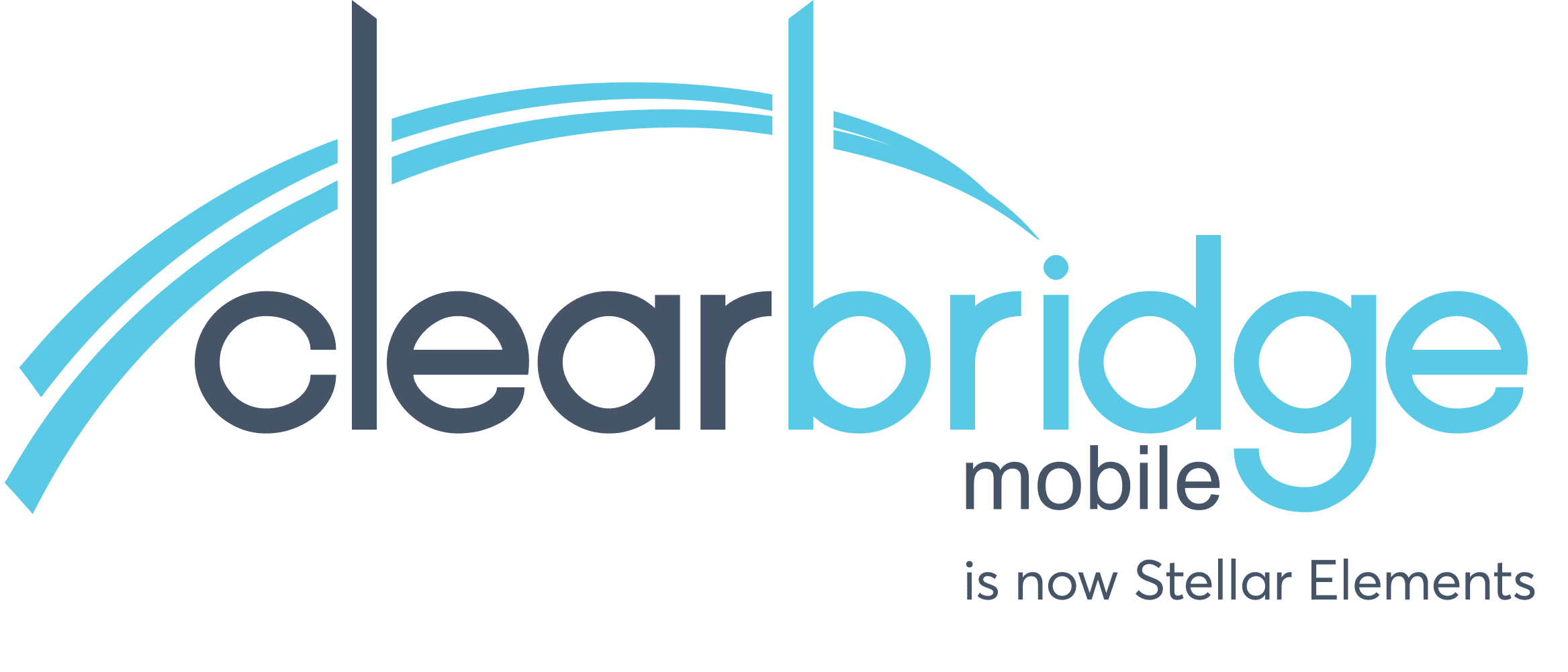Whether you’re starting your first mobile app development project, or you need to modernize an existing product, eventually you’ll need to fill out a mobile app RFP, or request for proposal.
Sometimes your company can’t take on the entire project internally, and when your business needs to purchase app development services chances are you’ll want to shop around. A mobile app RFP allows you to collect offers from a variety of vendors so you can choose a development partner that best meets the criteria of your project, when it comes to both experience and budget.
At Clearbridge Mobile, we deal with hundreds of mobile app RFPs every month, and not only do we respond to RFPs, we also help with the RFP writing process through strategic consulting and product discovery services. Our product discovery or ideation services, for instance, help businesses capture the necessary elements to write a thorough and effective mobile app RFP. Moreover, we’ve also created a customizable mobile app RFP template that provides the basic structure for the document.
The following article details how to fill out an RFP template and also includes an example for further assistance. Of course, it’s important to keep in mind that a mobile app RFP document is not one-size-fits-all. For this reason, it’s critical to modify your RFP to communicate exactly what your company needs.
To get the most out of this article, download a copy of our free RFP template below.
Why you Need an Amazing RFP
When you go through the process of sending out RFPs to vendors, it’s not just that you’re picking the best company to work with. You’re also signaling to potential customers about who you are as a business, and why they should choose you over the other RFPs they receive.
For this reason, your RFP needs to be clear when it comes to your goals, the criteria you are using to select a vendor, the desired functionality of the app, deadlines, and contact information. This is because the RFP process is meant to help define the relationship between you and the vendor upfront.
That means the quality of your RFP will have a massive impact on the quality of proposals (and the companies sending them) you’ll receive. In fact, a great number of companies don’t like responding to RFPs at all, and will simply ignore poorly written requests. As a result, you could miss out on the talent you need.
With this in mind, let’s take a look at what makes an amazing RFP
What Does a Mobile App RFP Include?
The first half of an RFP document is filled out by your company. This portion of an RFP contains the following sections:
- Executive Summary
- Company Information
- Project Description
- Product Functionality
- Use Cases
- Stakeholders
- Project Scope Requirements
- Services
- Operating Systems and Platforms
- Backend Requirements
- Push Notifications
- Analytics
- Budget
- Project Timeline
- Proposal Timeline
The second portion of an RFP document is completed by the development vendor. It includes the following sections:
- Company Overview
- Service Offerings
- Development Lifecycle Philosophy
- Case Studies
- Proposal
- Solution Overview
- Project Scope
- Project Timeline
- Pricing Model
- Maintenance Plan and Product Roadmap
Step-by-Step: How to Write a Mobile App RFP
Part One: To be completed by you
1. Executive Summary
We call this section “Executive Summary,” but there are several appropriate titles, like “Project Purpose,” for example. What is important is that you use this section to provide a summary of your organization, the business case the mobile product will address, and the required solution.
2. Company Information
In this section, you’ll want to provide a high-level overview of your company. In essence, this is where you introduce yourself. Show off how your company works, what your core values are, and define your goals.
Keep these key questions in mind:
- Why does the company exist (what problem is it trying to solve)?
- What products or services does the company provide?
- What industry and market(s) does it operate in?
- Who is the internal project lead(s)?
- Who are the key stakeholders/leadership?
3. Project Summary
This is where you tell your prospective vendors what the project requires of them. Each vendor has their own processes and procedures, so you’ll want to provide as much detail as possible about the project so they have a thorough understanding of the required solution.
The more focused and articulate your RFP is here, the more standardized the responses you receive will be. Therefore comparing potential partners will be much easier and more efficient.
Problem Summary
Describe the core business or customer problem your mobile solution intends to address here. Answering these questions will ensure your RFP stays on track.
- What are the business objectives?
- What is the product vision?
- Who are the target users of the application?
- Provide preliminary user personas
- What are your users’ goals? Their challenges?
- What situations might keep your users from converting? (ie. failure to understand the benefits of the app, difficulty navigating the app, etc.)
- Will this be a mobile-only solution, or is this project attached to a larger project?
Goals & Success Criteria
This section should be used to describe the criteria, metrics, and benchmarks that you will use to determine the success of the mobile solution.
- What are your quantifiable business goals?
- What are your user/download goals?
- List your goals for three months, six months, and a year post-launch.
- How do you intend to measure these goals?
Functionality
Take this opportunity to describe, in as much detail as possible, the end-to-end solution you’re looking to develop. Consider what the core functionality of the mobile app should be.
- What kind of functions is the app to perform?
- What features are necessary to create the required functionality?
- Please include a prioritized list of features?
- Please include user journeys, wireframes, and mockups for the solution.
- If possible, include a clickable app prototype.
Is your mobile app RFP missing essential information? Learn more about how our product ideation services can help you capture all the necessary deliverables for your RFP. Click here.
Use Cases
Take your potential development partners through a use-case of the app. How would a user interact with the app, from start to finish? Be sure to give a concise example.
Stakeholders
Who are the project decision-makers and key leaders? Specifically, who will be leading the project on a daily basis? What level of involvement do other stakeholders have in the project? Inform vendors of this information with a few lines about the team.
4. Project Scope Requirements
In this section you’ll want to narrow down the technical requirements for your RFP.
Services
What services do you require? Are you looking for services throughout the entire project lifecycle or only specific stages of production? You might be looking for a turn-key solution, or simply want services that cover some parts of the project. Such as:
- Consulting and Product Strategy
- Development
- Design and User Experience
- Quality Assurance and Testing
- Technical Delivery
Platforms
What platforms will the solution be built on?
- iOS
- Android
- Web
- Connected TV (Apple TV, Roku, Amazon Fire, Chromecast, Tizen, etc.)
- Other
Please specify which platform is your main priority. Several restraints (timeframe, resources, target audience, budget, etc.) can impact the number of platforms you’re able to develop on. Consequently, the number of platforms you require will have a direct impact on the cost of your project. What’s more, each platform mandates different developer backgrounds and skill sets. In other words, if you develop for multiple platforms, you are asking for multiple codebases. This can carry additional cost implications.
Backend
Do you have existing systems such as web services or CMS? If so, describe them here. Do the existing systems have available APIs and documentation to access? Is there a need for the vendor to develop web services or APIs? Do you have a current internal database? If so, what type (Oracle, Salesforce, MongoDB, etc.)?
Push Notifications
Will you require push notifications for your solution? If so, how often do you intend to customize push notification content? With what frequency will you need to send push notifications?
Analytics
Will you require analytics for your solution? If so, specify what kind of data you need to collect here.
5. Budget
Mobile app development budgets vary significantly, and your budget range will dictate the kinds of proposals you get. If your budget range is too wide, you’ll likely receive a lot of responses, but choosing from them may be difficult. You’ll need a budget that is precisely calculated, but with a wide enough range to allow for experience and expertise.
Your budget is generally dictated by by two primary factors:
- Scope (size) of the project
- Platforms to be used
- Number of functions and features
- Number of user flows
- Quality and experience of the vendor
Providing a budget in a mobile app RFP is essential for receiving accurate responses from vendors and setting exact expectations for the project. Your budget helps vendors to understand exactly what services they’re able to offer in order to meet your business goals.
6. Project Timeline
In this section, you’ll want to specify not only the due date for the project, but any circumstances that could influence that date. Consider:
- What date is the project due to launch?
- Is the launch date associated with an event?
- Are there dependencies that influence the launch date?
- When do you need development to start?
- Do you have expectations for how long the project will take?
7. Proposal Timeline
Please provide a due date for proposals to be submitted by, as well as a timeline that includes evaluation of proposals, shortlisted presentations (if required), and the selection of the winning bidder.
Part Two: To Be Completed by the Vendor
1. Mobile App Development Vendor Overview
Company Overview
Ask potential contractors to provide an overview of their company, the leadership, and the executive team. Consider asking questions like the following:
- How long has the company been in business? What is its mission?
- How does the agency provide value above its competitors?
- What is the size of the company?
- What are the sizes of the development, design, quality assurance, product, and project management teams?
- Where are the employees located? Will any work be done overseas?
Service Offerings
Request descriptions of all the services each development company offers to their clients. Expect responses in these areas:
- Consulting and Product Strategy
- Development
- Design & User Experience
- Quality Assurance
- Maintenance and Future-proofing
Development Lifecycle Philosophy
This section is meant for prospective partners to explain not only their development philosophy, but also the best practices they utilize in terms of development/project management.
- What development philosophy does the company follow?
- Why has it elected to follow this philosophy?
- What has the company done to refine or improve it?
- Who owns the code?
- What coding standards and best practices are followed?
Case Studies
The vendors’ portion of the RFP should contain a list of each company’s clients, awards, and overviews/summaries of client projects. These lists should go here. Ask them to summarize the challenge, solution, and end result of each project.
2. Proposal
This next section is entirely dedicated to each vendor’s offer for your project.
Solution Overview
Ask vendors to provide a summary or description of the resources they plan to use to meet your requirements. Other details may include:
- Who will be involved in the project? Please provide the resources you would use to tackle the requirements listed above and weekly cost for the team involved.
- What product management, project management, communication, and development tools will be used? Will the client have access to these tools?
- What will the key features be? Please provide a short summary.
- What platforms will the solution be developed for?
Project Scope
In this section you will ask vendors to provide comments and concerns about the supplied project scope. Specifically, you’ll want to understand the proposed timeline, budget, project risks, and any other concerns.
Project Timeline
Request a detailed project timeline including estimated start dates, schedule of activities, deliverables and resources to be used.
Pricing Model
Ask for an estimated price based on the scope of the project. They should include a fee breakdown in relation to time, scope, and weekly team costs.
Maintenance and Support Plan
Here, a summary of the types of service level support plans that are offered and a breakdown of services and costs should be provided by potential partners.
Final Thoughts
To write the best possible RFP, it’s important to have a thorough understanding of your end-to-end product strategy. It’s helpful to fully define your product before you begin writing a mobile app RFP; ideally, you should have a list of prioritized features, a visual solution detailing the user experience and user interface, as well as a clickable prototype, if possible. Our Design & Discovery session gives you access to mobile subject matter experts to help you validate your ideas and understand best practices for mobile to set your RFP up for successful bidding.
Keep Reading:
5 Things You Need to Know About Writing a Mobile App RFP
4 Mistakes to Avoid When Writing a Mobile App RFP
Is Your Mobile App RFP Ready to Submit to Potential Partners?





